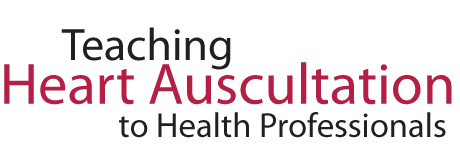Afterword
Future Prospects
John P. Finley MD CM
Dalhousie University
Halifax, Nova Scotia
The contents of this brief monograph indicate that action is urgently needed to reform the teaching of heart auscultation to prevent it from becoming a lost skill. And while more research into teaching methods and outcomes is inevitably needed, certain principles of effective teaching are clearly established, as noted by Drs Barrett and Pieretti. What is lacking is widespread adoption of these principles in curricula. Primary responsibility should rest with the associations of medical and health professional schools whose objective is to produce competent graduates. Reform may be encouraged by accrediting and licensing organizations. Agencies that accredit health professional schools could play an important role in insisting on better standards for skills teaching, as could professional organizations by providing more effective continuing educational programs for graduates. Licensing bodies could consider assessment of auscultation skill as part of recertification or maintenance of competence.
Research into educational methods, devices for teaching, and the neuropsychology of sound recognition is clearly needed. Methods of teaching could usefully be informed by the techniques already being employed in diverse disciplines such as audiology, music education, psychology and others.
Failure to address the deficiencies of current auscultation teaching will rapidly lead to further erosion of the skill and the disappearance of a useful clinical tool. The increasing use of portable imaging technology, often driven by financial interests, may prove an irresistible alternative to intelligent use of the inexpensive acoustic stethoscope.


